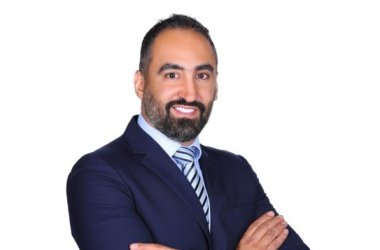
Jiten Sil – VP, Strategic Initiatives at Bahwan CyberTek, highlights BCT’s journey of prioritising people and processes over technology, adopting a ‘Fit-for-Future’ approach, and leveraging proprietary IP products to elevate user experiences in the digital landscape.
Can you outline to our readers how Bahwan CyberTek (BCT) has harnessed cutting-edge technologies to transform how you conduct your day-to-day operations to deliver the ‘experience’ that your customers, end-users, and partners’ demand in the experience economy?
Absolutely. Experience-led growth is a business priority in today’s digital landscape. Since its inception in 1999, BCT’s objective has been to enable the transformation of businesses through a unique combination of intellectual property and innovative business models for value creation. Equipped with deep-domain expertise, world-class knowledge capital, and IP products, we’ve successfully assisted our customers in becoming agile, embracing disruption, and preparing for the future. What sets us apart is our conviction that business objectives should spearhead, not follow, technological applications.
Our approach is distinctly characterized by prioritising people and processes before identifying and deploying suitable technology to meet the stipulated business requirements. To help enterprises keep up the pace of transformation we’ve adopted a ‘Fit-for-Future’ framework, an approach that we deploy for every project we undertake. We’re not just looking at present-day challenges but are constantly future-gazing, anticipating, and preparing for what lies ahead. This forward-thinking mindset ensures we, and our clients, are always a step ahead in this fast-paced digital landscape. We do this using our IP products, award-winning services, and outcome-based business models.
Our proprietary products, each meticulously developed from the ground up to address specific needs within various industry verticals, can sense, analyse, predict, and drive business divisions. By incorporating advanced technologies like AI, IoT, Hyper Automation, Distributed Cloud, and Extended Reality, among others, and collaborating with leading technology players, we ensure our clients receive exceptional value in their daily functions. Whether it is Dropthought (DT), our digital experience management solution that captures real-time sentiment analytics or feedback from all stakeholders, or whether it is retina360, our flagship AI-powered predictive analytics solution, our products address evolving business needs and priorities bridging the gap between individuals and technology, thereby elevating user experiences and streamlining operations.
OpenAI and ChatGPT are all the rage, and these new AI integrations have been tipped to fundamentally reshape all major industries as we know them. What is your view on OpenAI, are you excited by the new opportunities that it will present, or do you think more regulation is needed to control its impact on society?
Being at the forefront of digital transformation, we inherently possess a zest for fresh technological advancements. We are always eager to explore the potential they harbor. Nevertheless, it’s vital to remember our overarching commitment to our customers and society. As service providers in the digital age, we firmly believe in the importance of regulatory measures, particularly data security and individual privacy.
We have encountered transformative technologies throughout history, beginning with the Industrial Revolution, that redefine our societal and operational norms. Each technological milestone, while often perceived as a disruptive force, has been a human-made creation, and ultimately, it is humanity that learns to harness its potential in a beneficial manner. OpenAI and ChatGPT are just the latest in this lineage of innovations, and we’ve barely scratched the surface. According to McKinsey, generative AI’s impact on productivity could add trillions of dollars in value to the global economy.
Echoing our ‘Fit-for-Future’ ethos, it’s paramount to consider the longevity and sustainability of any technology we adopt. CXOs must look beyond the hype and seek real transformative value. In some cases, today’s promising solution might emerge as tomorrow’s challenge. Therefore, when contemplating the integration of cutting-edge AI systems like OpenAI and ChatGPT, we must look beyond immediate applications, and look for value creation. We need to envision their role in the foreseeable future, taking proactive steps to lay down guidelines that ensure their sustainable and secure deployment.
There has been a swathe of digital and cloud transformation projects in the Middle East over the last 3-5 years. However, many have struggled with the demands of cloud transformation, especially legacy-heavy players. What are the key processes that enterprises need to adopt to ensure a successful transformation journey?
There’s a shift in the MENA region from an oil-based economy to a digital economy. Good talent, robust policies, and attractive investments are driving this shift, positioning this region as a key digital destination. Countries in the region are doubling down on their commitment to economic diversity with encouraging programs like the Saudi Vision 2023, the Abu Dhabi Economic Vision 2030, and Oman Vision 2040.
This wave of digital and cloud transformation projects in the Middle East over the recent years has illuminated the complexities, especially for enterprises deeply entrenched in legacy systems. To navigate these intricacies, a successful transformation journey necessitates a triad of key processes:
- Unified Vision: Leadership must articulate and integrate the company’s mission at all levels. This ongoing process ensures that all stakeholders work cohesively towards shared goals, driving successful transformations.
- Structured Approach: Effective transformation requires breaking down ambitious goals into achievable tasks, executed in sequence by the right team. This methodical approach, akin to solving complex problems, leads to realistic and attainable milestones.
- Transparent Operations: Trust and open communication are vital. With clear tasks and engaged experts, an atmosphere of transparency allows for smooth project progression, with challenges promptly identified and addressed.
We have consulted and worked alongside our clients to achieve this and the results have been resounding across various industries.
In your expert opinion, what do you view as the biggest problem facing enterprises in the IT and technology industry across the Middle East?
The two primary challenges facing enterprises in the IT and technology sector across the Middle East are the availability of local domain experts and the prevalence of legacy systems.
Firstly, there’s a noticeable shortage of local subject matter experts in the region. The current demand for specialised knowledge is often met by professionals from outside the MENA region. However, there have been commendable initiatives in countries like the UAE and KSA to nurture and develop local talent in the technology sector. We at BCT actively participate in this endeavor. In several of our projects in the UAE, we not only hire but also invest in training enthusiastic young nationals who display a keen interest in the field.
Secondly, while many public and private organisations are eager to adopt cutting-edge technologies to meet the demands of the present, the presence of legacy systems significantly impedes this process. These older systems often lack the flexibility required to integrate seamlessly with newer, more advanced technologies. With 24 years of experience as system integrators, we at BCT understand the constraints posed by legacy systems. Our deep expertise allows us to develop solutions that enable organisations to leverage their existing infrastructure while enhancing its integrability, agility, flexibility, and security. Through lightweight wrappers and other innovative approaches, we ensure that these legacy systems can not only meet but often exceed current technological and operational requirements.
This supplement is titled Tech Vision, so with that in mind, what do you think the future holds for the IT and tech sector across the Middle East, what will be the key trends and technologies that will really champion change over the next ‘digital decade’?
In the upcoming “digital decade,” the Middle East’s IT and tech landscape will be shaped by several crucial trends and technologies:
- Environmental, Social, and Governance (ESG): The region will focus on resilient and sustainable economic plans, aligning tech development with societal and environmental objectives.
- Internet of Things (IoT): A transformation in public services will occur through further digitalization, providing valuable real-time information to citizens and enhancing operations and enhancing citizen experience.
- AI / ML / DL: Artificial Intelligence, Machine Learning, and Deep Learning will foster innovative, efficient, and productive work processes through data science.
- Extended Reality (AR / VR / Metaverse): This technology will bridge digital and physical worlds, offering interactive services to the public and private sectors.
- Distributed Cloud & Hyperautomation: These will enhance security, decision-making, worker capability, efficiency, and cost savings in computational intelligence management.
- Digital Immune Systems: Developed to minimize system failures and business disruptions, these will improve user experiences as we delve deeper into the digital age.
The next ‘digital decade’ for the Middle East’s IT and tech sector is brimming with opportunities, and these trends and technologies will drive digital transformation, innovation, and growth in the Middle East’s IT and tech sector.





